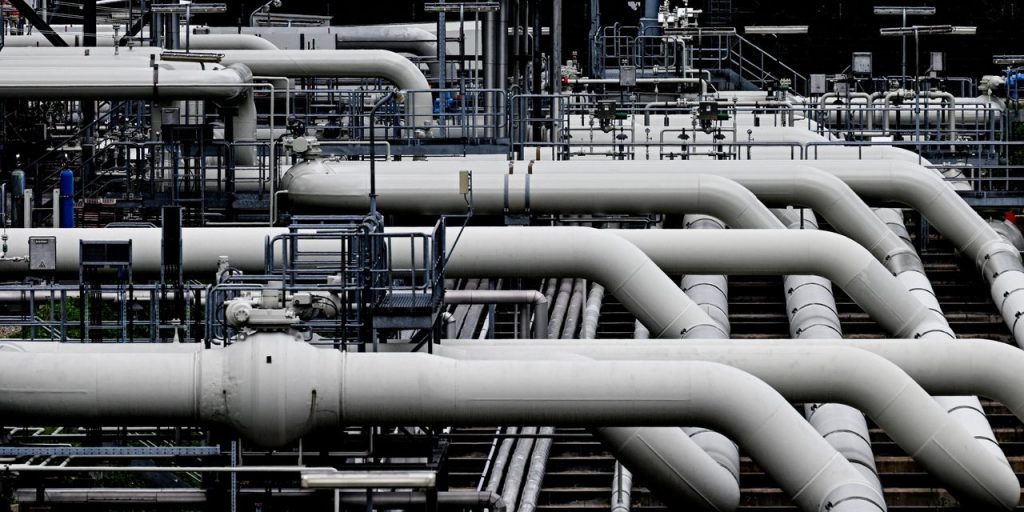After receiving threats that it would reduce or stop all gas shipments to Europe, Russia has started flowing gas again through its largest pipeline. After a 10-day repair pause, the Nord Stream 1 pipeline was resumed, but at a lower rate.
In case Russia cut off Europe’s supply, the European Commission advised nations on Wednesday to reduce gas use by 15% over the ensuing seven months. Last year, 40% of Europe’s natural gas came from Russia.
Germany was the biggest importer on the continent in 2020, but it now only depends on Russian gas 35% of the time. At some point, it aims to completely quit utilising Russian gas.
After a 10-day maintenance delay, Russia restarted partial gas shipments through a vital pipeline to Europe on Thursday, to the relief of Germany and its European allies.
Many in Berlin and Brussels feared that Nord Stream 1, which connects Russia and Germany beneath the Baltic Sea, would not resume operations following the disruption.
However, the operator, Nord Stream AG, claimed that gas was again flowing once more. It added on Thursday that it was “in the process of resuming gas transportation, however it could take a few hours to achieve the nominated amounts.”
In the wake of Moscow’s invasion of Ukraine, the uncertainty surrounding gas deliveries through NS1 has come to represent the breakdown in ties between Russia and the west. In the four weeks prior to the scheduled maintenance, Russia reduced the flow of gas via the pipeline, and Germany accused it of “weaponizing” its energy exports to Europe in an effort to create fear in the markets and raise prices.
Although the return of the gas flow will be welcomed by European governments, early signs suggest that Nord Stream 1 is still not performing to its full potential.
The director of Germany’s federal energy regulator, Klaus Müller, predicted that volumes would be 60% lower than they had been prior to the maintenance period. He stated on Twitter that “the political uncertainties and the 60% drop from mid-June persist, unfortunately.”
By restoring partial flows, Russian President Vladimir Putin will be able to exert some influence over European cities this winter and in advance of any potential resolution to the war in Ukraine, according to James Waddell, an analyst at Energy Aspects.
Nord Stream 1’s ongoing drop in gas supply will probably make it harder for nations to restock before winter, when gas demand is substantially higher. European nations have been exploring for alternate gas suppliers, such as LNG from the US that can be shipped.
However, it can be costly and time-consuming to create the infrastructure required to import gas from alternative suppliers, making it doubtful that Russian gas can be totally replaced before the upcoming winter.
Instead, it could be required to reduce gas usage, and on Wednesday, Ursula von der Leyen, the president of the EU Commission, established a voluntary goal for all EU countries to cut their gas use by 15%.
